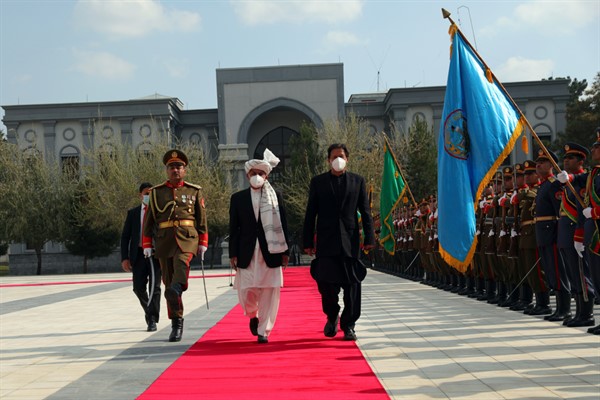As U.S. troops begin what may be their final withdrawal from Afghanistan, no third country will be affected by their departure as much as Pakistan, which shares a long, porous border with Afghanistan, hosts much of the Taliban leadership as well as millions of Afghan refugees, and faces threats from Pakistani militants based there.
For Pakistan, America has been both a partner and a strategic competitor in Afghanistan. Notionally, the U.S. exit presents Islamabad with an opportunity to proactively shape Kabul’s political future in its favor. But in reality, a post-withdrawal Afghanistan without an internationally backed, intra-Afghan accord offers far greater risks than rewards for Pakistan. An emboldened Taliban and a potential civil war next-door would not only jeopardize Islamabad’s dreams for regional connectivity, but also pose a threat to its own domestic security.
Managing the Superpower Next Door
For nearly two decades, the U.S. presence in Afghanistan across Pakistan’s northwestern border has been a problem for Islamabad—one it has sought and struggled to manage.

